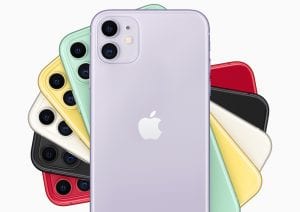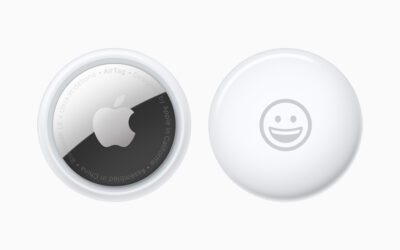The five worst travel mobile phone scams to avoid include robocalls, fake notifications, fake QR codes, travel verification, and fake AI family member voice scams trying to steal your money and/or identity.

Here are the five worst mobile phone scams I’ve found that we all have to avoid.
Robocalls with deals too good to be true are too good to be true.
Robocalls with vacation deals:
I suspect that if you have a phone you’ve received many robocalls. Sales robocalls are illegal unless you’ve given the company written permission to call you. That hasn’t seemed to have stopped any company, nor hackers and thieves. Frankly, if someone breaks the law to call you, the odds are that they’re running a scam. You can usually recognize a robocall. It typically starts with an automated message with a strange “Caller ID.” Then there’s usually a lengthy pause before someone comes on the line with you.
If it’s a robocall, I recommend hanging up. Generally, I don’t answer any call with a “Caller ID” name or number I don’t recognize, plus I keep in mind that “Caller IDs” can be easily spoofed.
If you answer the call and the caller starts to describe their deal, on’t forget that if a deal’s too good to be true, it generally is. If they won’t reveal specific details of the deal, require payment in full at the time of booking, or charge a substantial fee for a free vacation, hang up. I hang up whenever I find a call is a robocall.
Fake notifications, whether by text or phone call, are designed to steal your money and personal information.

Not long ago I got mobile phone scam with an urgent message that I had unpaid toll on Florida’s SunPass system. It said I owed $75 in tolls and a fee. I was warned that if I didn’t pay immediately, a $100 fine would be assessed. The text message had a payment link. The link was a funky one that went to a fake SunPass website that looked real. Fortunately, I recognized the scam immediately and deleted the message.
How can you spot it? Look at the link to see if it’s legitimate. Is it going to a fake payment site? The urgent tone of the text message set off an alarm code for me and should for all.
Are you wondering how you got hacked? Sometimes it’s just a mass text message hack. Other times social media posts can be a giveaway. There’s no telling how you got the message.
The same message might come in the form of a phone call. They are calling to save you money. Then they’ll email or send you a text with a link to their fake payment portal. Generally, the legitimate companies don’t call or text their customers.
If you get scam text, delete it. If you get a fake phone call, hang up. Never give out personal information to unknown agents. Not only will they take your money, they’ll likely sell the personal information they learn about you from, you guessed it, you.
QR code sticker overlays are used to hide the real ones and send you to fake payment portals to steal your money.
QR codes overlaid on menus, signs and kiosks:
I’m sure you’ve seen QR code stickers across the world at cafes, museums, bus stops, airports, taxi stands, park benches, etc. Some restaurants put QR codes on their menus and tables. In many places it’s easy to apply fake stickers over real ones. The fakes send you to a fake order and payment page. Many of the fake pages are professionally designed to look as identical as possible to the real ones.
Before using a QR code, check to see if it’s an overlay covering a real QR code sticker. I found several fake overlays when traveling in Australia not long ago. At the venue’s site, be sure that the URL makes sense. If you’re in a restaurant, it’s better to go directly to the restaurant site, not through the QR code. If you want to buy tickets via a QR code, don’t. Go to the venue’s site directly. If you have to use a QR code on a sticker, pay with a credit card. They’re safer than debit cards.
Travel verification requests by phone calls and text messages are rarely anything but a scam to get your personal information.
Travel verification scams:
A reader wrote to me about how he almost got hooked into giving out personal information and credit card information to a scammer. He got a call on his cellphone to verify his airline ticket information. The voice said that there was a problem with his reservation. It was a scammer posing as an airline agent. The fake agent said that he needed to verify the reader’s reservation and payment information, to correct the reservation issue or he couldn’t fly the next day.
This user was a little skeptical. He had just logged in to his account on his cellphone and successfully retrieved his electronic boarding pass. He purposely gave the wrong locator for the reservation by one letter. When the so-called agent said okay, he knew it was a scam and hung up.
If you get a call like that from an airline, hotel, travel agent, railroad, etc., tell them that you’ll call them back and hang up. If the call was legitimate, call the company directly using their known reservation phone number.

Scammers use fake AI-generated voices from traveling family members to steal money and personal information from unsuspecting family members, particularly older ones, via phone calls.
AI-generated relative’s voice saying they’ve run out of money for phone calls:
In August, a friend’s father thought that he got a call from his grandson, my friend’s son, who was traveling in Europe. The person sounded exactly like the grandson. He said he was out of cash and needed help. He asked to have cash wired to him or to have an eGift card sent. Fortunately, just before he was entering the information to send $5,000, my friend walked in the door and asked with whom he was speaking. Gramps said, “It’s David from Paris.” My friend was suspicious and took the phone. He used the family challenge question. The answer was wrong. He hung up. His dad screamed, “Why did you do that?” My friend said, “You didn’t use the challenge question you drilled into us as kids. It was a fake AI voice, a scam.”
Every family should have a code word for saying you’re in trouble if under duress and a challenge question/answer to prove identity. They should be simple, straightforward, easy to remember, and something only the family would use. The family must keep it confidential and safe.
My friend and I surmise that a hacker knew the grandson was traveling from posts on Instagram and his grandfather’s replies. The scammer likely used a video to train AI to fake the grandson’s voice. Never post about a trip before you leave or while you’re on the road.
Learning about these five scams is only the first step. All travelers must be vigilant when receiving calls, emails or texts, plus when scanning QR codes, to avoid these scams that can become financial and identity nightmares.
READ ALSO:
Haunted ski resorts that will scare the bejesus out of you
How the cruise line bill of rights and refund policy affect you
After many years working in corporate America as a chemical engineer, executive and eventually CFO of a multinational manufacturer, Ned founded a tech consulting company and later restarted NSL Photography, his photography business. Before entering the corporate world, Ned worked as a Public Health Engineer for the Philadelphia Department of Public Health. As a well known corporate, travel and wildlife photographer, Ned travels the world writing about travel and photography, as well as running photography workshops, seminars and photowalks. Visit Ned’s Photography Blog and Galleries.



